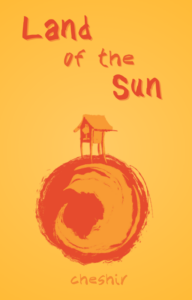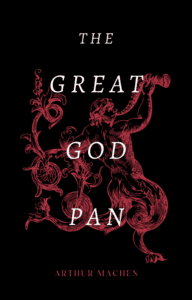Luxury was a thing almost unknown in the days of my infancy. The standard of living was then, as a whole, much more simple than it is now. Apart from that, the children of our household were entirely free from the fuss of being too much looked after. The fact is that, while the process of looking after may be an occasional treat for the guardians, to the children it is always an unmitigated nuisance.
We used to be under the rule of the servants. To save themselves trouble they had almost suppressed our right of free movement. But the freedom of not being petted made up even for the harshness of this bondage, for our minds were left clear of the toils of constant coddling, pampering and dressing-up.
Our food had nothing to do with delicacies. A list of our articles of clothing would only invite the modern boy’s scorn. On no pretext did we wear socks or shoes till we had passed our tenth year. In the cold weather a second cotton tunic over the first one sufficed. It never entered our heads to consider ourselves ill-off for that reason. It was only when old Niyamat, the tailor, would forget to put a pocket into one of our tunics that we complained, for no boy has yet been born so poor as not to have the wherewithal to stuff his pockets; nor, by a merciful dispensation of providence, is there much difference between the wealth of boys of rich and of poor parentage. We used to have a pair of slippers each, but not always where we had our feet. Our habit of kicking the slippers on ahead, and catching them up again, made them work none the less hard, through effectually defeating at every step the reason of their being.
Our elders were in every way at a great distance from us, in their dress and food, living and doing, conversation and amusement. We caught glimpses of these, but they were beyond our reach. Elders have become cheap to modern children; they are too readily accessible, and so are all objects of desire. Nothing ever came so easily to us. Many a trivial thing was for us a rarity, and we lived mostly in the hope of attaining, when we were old enough, the things which the distant future held in trust for us. The result was that what little we did get we enjoyed to the utmost; from skin to core nothing was thrown away. The modern child of a well-to-do family nibbles at only half the things he gets; the greater part of his world is wasted on him.
Our days were spent in the servants’ quarters in the south-east corner of the outer apartments. One of our servants was Shyam, a dark chubby boy with curly locks, hailing from the District of Khulna. He would put me into a selected spot and, tracing a chalk line all round, warn me with solemn face and uplifted finger of the perils of transgressing this ring. Whether the threatened danger was material or spiritual I never fully understood, but a great fear used to possess me. I had read in the Ramayana of the tribulations of Sita for having left the ring drawn by Lakshman, so it was not possible for me to be sceptical of its potency.
Just below the window of this room was a tank with a flight of masonry steps leading down into the water; on its west bank, along the garden wall, an immense banyan tree; to the south a fringe of cocoanut palms. Ringed round as I was near this window I would spend the whole day peering through the drawn Venetian shutters, gazing and gazing on this scene as on a picture book. From early morning our neighbours would drop in one by one to have their bath. I knew the time for each one to arrive. I was familiar with the peculiarities of each one’s toilet. One would stop up his ears with his fingers as he took his regulation number of dips, after which he would depart. Another would not venture on a complete immersion but be content with only squeezing his wet towel repeatedly over his head. A third would carefully drive the surface impurities away from him with a rapid play of his arms, and then on a sudden impulse take his plunge. There was one who jumped in from the top steps without any preliminaries at all. Another would walk slowly in, step by step, muttering his morning prayers the while. One was always in a hurry, hastening home as soon as he was through with his dip. Another was in no sort of hurry at all, taking his bath leisurely, followed with a good rub-down, and a change from wet bathing clothes into clean ones, including a careful adjustment of the folds of his waist cloth, ending with a turn or two in the outer garden, and the gathering of flowers, with which he would finally saunter slowly homewards, radiating the cool comfort of his refreshed body, as he went. This would go on till it was past noon. Then the bathing places would be deserted and become silent. Only the ducks remained, paddling about after water snails, or busy preening their feathers, the live-long day.
When solitude thus reigned over the water, my whole attention would be drawn to the shadows under the banyan tree. Some of its aerial roots, creeping down along its trunk, had formed a dark complication of coils at its base. It seemed as if into this mysterious region the laws of the universe had not found entrance; as if some old-world dream-land had escaped the divine vigilance and lingered on into the light of modern day. Whom I used to see there, and what those beings did, it is not possible to express in intelligible language. It was about this banyan tree that I wrote later:
With tangled roots hanging down from your branches, O ancient banyan tree,You stand still day and night, like an ascetic at his penances,Do you ever remember the child whose fancy played with your shadows?
Alas! that banyan tree is no more, nor the piece of water which served to mirror the majestic forest-lord! Many of those who used to bathe there have also followed into oblivion the shade of the banyan tree. And that boy, grown older, is counting the alternations of light and darkness which penetrate the complexities with which the roots he has thrown off on all sides have encircled him.
Going out of the house was forbidden to us, in fact we had not even the freedom of all its13 parts. We perforce took our peeps at nature from behind the barriers. Beyond my reach there was this limitless thing called the Outside, of which flashes and sounds and scents used momentarily to come and touch me through its interstices. It seemed to want to play with me through the bars with so many gestures. But it was free and I was bound—there was no way of meeting. So the attraction was all the stronger. The chalk line has been wiped away to-day, but the confining ring is still there. The distant is just as distant, the outside is still beyond me; and I am reminded of the poem I wrote when I was older:
The tame bird was in a cage, the free bird was in the forest,They met when the time came, it was a decree of fate.The free bird cries, “O my love, let us fly to wood.”The cage bird whispers, “Come hither, let us both live in the cage.”Says the free bird, “Among bars, where is there room to spread one’s wings?””Alas,” cries the cage bird, “I should not know where to sit perched in the sky.”
The parapets of our terraced roofs were higher than my head. When I had grown taller; when the tyranny of the servants had relaxed; when, with the coming of a newly married bride into the house, I had achieved some recognition as a companion of her leisure, then did I sometimes come up to the terrace in the middle of the day. By that time everybody in the house would have finished their meal; there would be an interval in the business of the household; over the inner apartments would rest the quiet of the midday siesta; the wet bathing clothes would be hanging over the parapets to dry; the crows would be picking at the leavings thrown on the refuse heap at the corner of the yard; in the solitude of that interval the caged bird would, through the gaps in the parapet, commune bill to bill with the free bird!

The Inner Garden was My Paradise
I would stand and gaze…. My glance first falls on the row of cocoanut trees on the further edge of our inner garden. Through these are seen the “Singhi’s Garden” with its cluster of huts and tank, and on the edge of the tank the dairy of our milkwoman, Tara; still further on, mixed up with the tree-tops, the various shapes and different heights of the terraced roofs of Calcutta, flashing back the blazing whiteness of the midday sun, stretch right away into the grayish blue of the eastern horizon. And some of these far distant dwellings from which stand forth their roofed stair-ways leading up to the terrace, look as if with uplifted finger and a wink they are hinting to me of the mysteries of their interiors. Like the beggar at the palace door who imagines impossible treasures to be held in the strong rooms closed to him, I can hardly tell of the wealth of play and freedom which these unknown dwellings seem to me crowded with. From the furthest depth of the sky full of burning sunshine overhead the thin shrill cry of a kite reaches my ear; and from the lane adjoining Singhi’s Garden comes up, past the houses silent in their noonday slumber, the sing-song of the bangle-seller—chai choori chai … and my whole being would fly away from the work-a-day world.
My father hardly ever stayed at home, he was constantly roaming about. His rooms on the third storey used to remain shut up. I would pass my hands through the venetian shutters, and thus opening the latch get the door open, and spend the afternoon lying motionless on his sofa at the south end. First of all it was a room always closed, and then there was the stolen entry, this gave it a deep flavour of mystery; further the broad empty expanse of terrace to the south, glowing in the rays of the sun would set me day-dreaming.
There was yet another attraction. The water-works had just been started in Calcutta, and in the first exuberance of its triumphant entry it did not stint even the Indian quarters of their supply. In that golden age of pipe water, it used to flow even up to my father’s third storey rooms. And turning on the shower tap I would indulge to my heart’s content in an untimely bath. Not so much for the comfort of it, as to give rein to my desire to do just as I fancied. The alternation of the joy of liberty, and the fear of being caught, made that shower of municipal water send arrows of delight thrilling into me.
It was perhaps because the possibility of contact with the outside was so remote that the joy of it came to me so much more readily. When material is in profusion, the mind gets lazy and leaves everything to it, forgetting that for a successful feast of joy its internal equipment counts for more than the external. This is the chief lesson which his infant state has to teach to man. There his possessions are few and trivial, yet he needs no more for his happiness. The world of play is spoilt for the unfortunate youngster who is burdened with an unlimited quantity of playthings.
To call our inner garden a garden is to say a deal too much. Its properties consisted of a citron tree, a couple of plum trees of different varieties, and a row of cocoanut trees. In the centre was a paved circle the cracks of which various grasses and weeds had invaded and planted in them their victorious standards. Only those flowering plants which refused to die of neglect continued uncomplainingly to perform their respective duties without casting any aspersions on the gardener. In the northern corner was a rice-husking shed, where the inmates of the inner apartments would occasionally foregather when household necessity demanded. This last vestige of rural life has since owned defeat and slunk away ashamed and unnoticed.
None the less I suspect that Adam’s garden of Eden could hardly have been better adorned than this one of ours; for he and his paradise were alike naked; they needed not to be furnished with material things. It is only since his tasting of the fruit of the tree of knowledge, and till he can fully digest it, that man’s need for external furniture and embellishment persistently grows. Our inner garden was my paradise; it was enough for me. I well remember how in the early autumn dawn I would run there as soon as I was awake. A scent of dewy grass and foliage would rush to meet me, and the morning with its cool fresh sunlight would peep out at me over the top of the Eastern garden wall from below the trembling tassels of the cocoanut palms.
There is another piece of vacant land to the north of the house which to this day we call the golabari (barn house). The name shows that in some remote past this must have been the place where the year’s store of grain used to be kept in a barn. Then, as with brother and sister in infancy, the likeness between town and country was visible all over. Now the family resemblance can hardly be traced. This golabari would be my holiday haunt if I got the chance. It would hardly be correct to say that I went there to play—it was the place not play, which drew me. Why this was so, is difficult to tell. Perhaps its being a deserted bit of waste land lying in an out-of-the-way corner gave it its charm for me. It was entirely outside the living quarters and bore no stamp of usefulness; moreover it was as unadorned as it was useless, for no one had ever planted anything there; it was doubtless for these reasons that this desert spot offered no resistance to the free play of the boy’s imagination. Whenever I got any loop-hole to evade the vigilance of my warders and could contrive to reach the golabari I felt I had a holiday indeed.
There was yet another place in our house which I have even yet not succeeded in finding out. A little girl playmate of my own age called this the “King’s palace.” “I have just been there,” she would sometimes tell me. But somehow the propitious moment never turned up when she could take me along with her. That was a wonderful place, and its playthings were as wonderful as the games that were played there. It seemed to me it must be somewhere very near—perhaps in the first or second storey; the only thing was one never seemed to be able to get there. How often have I asked my companion, “Only tell me, is it really inside the house or outside?” And she would always reply, “No, no, it’s in this very house.” I would sit and wonder: “Where then can it be? Don’t I know all the rooms of the house?” Who the king might be I never cared to inquire; where his palace is still remains undiscovered; this much was clear—the king’s palace was within our house.
Looking back on childhood’s days the thing that recurs most often is the mystery which used to fill both life and world. Something undreamt of was lurking everywhere and the uppermost question every day was: when, Oh! when would we come across it? It was as if nature held something in her closed hands and was smilingly asking us: “What d’you think I have?” What was impossible for her to have was the thing we had no idea of.
Well do I remember the custard apple seed which I had planted and kept in a corner of the south verandah, and used to water every day. The thought that the seed might possibly grow into a tree kept me in a great state of fluttering wonder. Custard apple seeds still have the habit of sprouting, but no longer to the accompaniment of that feeling of wonder. The fault is not in the custard apple but in the mind. We had once stolen some rocks from an elder cousin’s rockery and started a little rockery of our own. The plants which we sowed in its interstices were cared for so excessively that it was only because of their vegetable nature that they managed to put up with it till their untimely death. Words cannot recount the endless joy and wonder which this miniature mountain-top held for us. We had no doubt that this creation of ours would be a wonderful thing to our elders also. The day that we sought to put this to the proof, however, the hillock in the corner of our room, with all its rocks, and all its vegetation, vanished. The knowledge that the schoolroom floor was not a proper foundation for the erection of a mountain was imparted so rudely, and with such suddenness, that it gave us a considerable shock. The weight of stone of which the floor was relieved settled on our minds when we realised the gulf between our fancies and the will of our elders.
How intimately did the life of the world throb for us in those days! Earth, water, foliage and sky, they all spoke to us and would not be disregarded. How often were we struck by the poignant regret that we could only see the upper storey of the earth and knew nothing of its inner storey. All our planning was as to how we could pry beneath its dust-coloured cover. If, thought we, we could drive in bamboo after bamboo, one over the other, we might perhaps get into some sort of touch with its inmost depths.
During the Magh festival a series of wooden pillars used to be planted round the outer courtyard for supporting the chandeliers. Digging holes for these would begin on the first of Magh. The preparations for festivity are ever interesting to young folk. But this digging had a special attraction for me. Though I had watched it done year after year—and seen the hole grow bigger and bigger till the digger had completely disappeared inside, and yet nothing extraordinary, nothing worthy of the quest of prince or knight, had ever appeared—yet every time I had the feeling that the lid being lifted off a chest of mystery. I felt that a little bit more digging would do it. Year after year passed, but that bit never got done. There was a pull at the curtain but it was not drawn. The elders, thought I, can do whatever they please, why do they rest content with such shallow delving? If we young folk had the ordering of it, the inmost mystery of the earth would no longer be allowed to remain smothered in its dust covering.
And the thought that behind every part of the vault of blue reposed the mysteries of the sky would also spur our imaginings. When our Pundit, in illustration of some lesson in our Bengali science primer, told us that the blue sphere was not an enclosure, how thunderstruck we were! “Put ladder upon ladder,” said he, “and go on mounting away, but you will never bump your head.” He must be sparing of his ladders, I opined, and questioned with a rising inflection, “And what if we put more ladders, and more, and more?” When I realised that it was fruitless multiplying ladders I remained dumbfounded pondering over the matter. Surely, I concluded, such an astounding piece of news must be known only to those who are the world’s schoolmasters!







